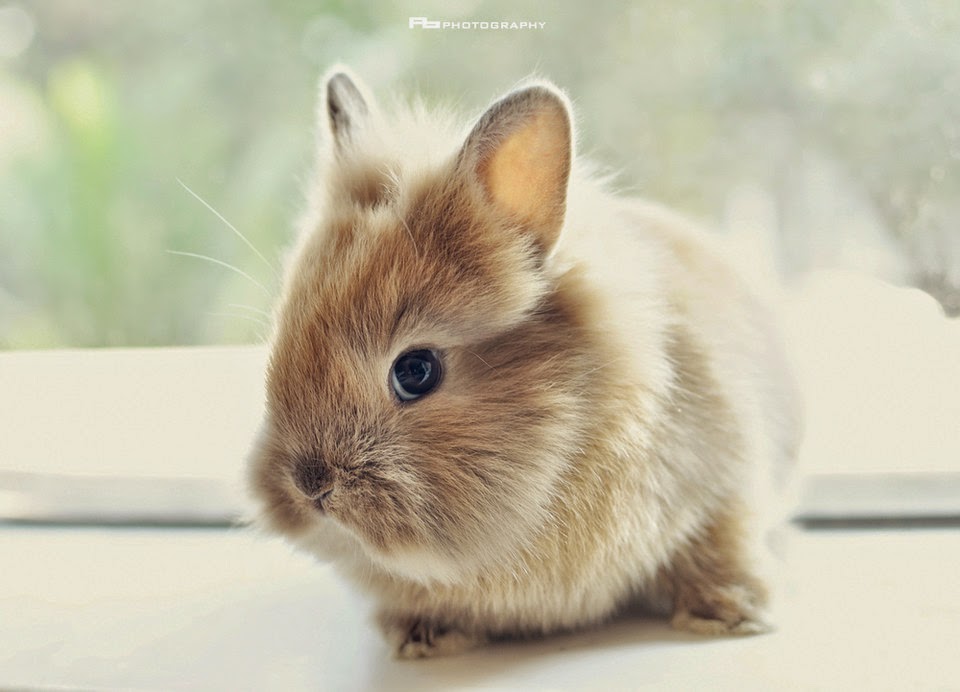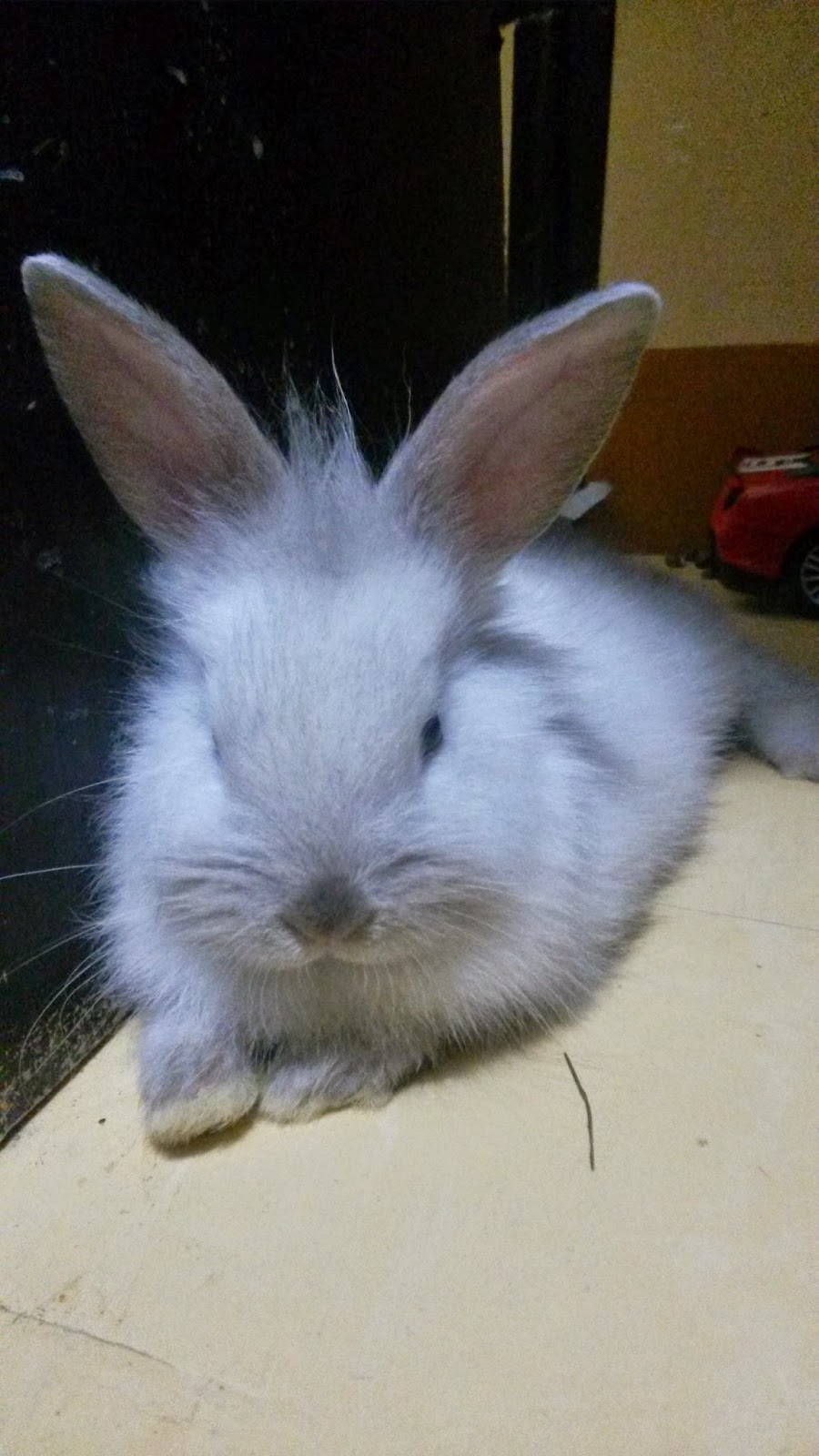A pregnant rabbit needs a lot of attention and care. Providing them a lot of healthy rabbit pellet, unlimited amount of hay and water will keep them healthy as their body need to prepare to give birth and nurse the newborn rabbit. On my personal experience when rabbit is pregnant she tends to be aggressive when I'm touching her which is I completely understand as she need to protect her babies. Once you are sure your rabbit is pregnant immediately prepare her environment where she will give birth.
Nestbox. The nestbox should be about 12x14 inches, and the bottom should have a couple of drain holes. The sides can be about 8 inches high, but the front should be no more than 4 inches where the mother rabbit will enter and exit. A cardboard box may do temporarily but will get soggy and need to be replaced.
Bedding. Line the nestbox with a 3-inch layer of clean hay, straw, or shredded paper.
Fur-lined hollow. Make a small bowl-shaped hollow in the middle of the bedding in the nestbox and fill it with fur from the mother rabbit. If she has not pulled any out herself, either try gently pulling it out of her dewlap or clipping some off.
Babies. Place the babies in the hollow you made. They will burrow to the bottom and remain there until the mother rabbit stands over them to nurse.
Birthing process
The nestbox should be provided at around 28 days of gestation. Nest-building behavior from the pregnant rabbit will involve burrowing and pulling of fur from the dewlap, flanks, and belly to line the nest and expose the nipples.
The birthing, or parturition, usually occurs in the early morning during their normal resting period. Even in large litters, parturition will take only 10 or 15 minutes. The rabbit kits will be born hairless with ears and eyes closed. A mother will sometimes lick the babies as they are born and quickly eat their placentas.
Nursing process
After the babies are born, a mother rabbit will leave the nest and return once every 24 hours at night for 3 to 4 minutes to allow the babies to nurse. Only rarely does the mother rabbit immediately nurse the babies after they are born. Usually the first nursing will occur the night after the kindling. The preferred mealtime is between midnight and 5 am.
When she arrives, the mother rabbit will immediately hunch over the young in a nursing posture. She will not lie down like a cat does to nurse. The babies will rear up, find a nipple, and suckle rapidly. Typically, significant amounts of milk are obtained only during the second minute of nursing -- a baby can gain up to a third of its body weight in this short session.
When the time is up, the mother rabbit may lick the babies to stimulate urination and defecation, then jump away, defecate a few hard feces, and leaves the nest, even if some babies may not have received any milk at all due to competition.
Once your rabbit gave birth be sure to provide them a quite and comfortable place for the mother and babies. This will lessen the stress of the mother rabbit. Avoid touching newborn rabbits.
My next blog will tackle how to care for newborn rabbits. Hope you learn from this blog.
Here are some steps in caring a pregnant rabbit.
Necessary suppliesNestbox. The nestbox should be about 12x14 inches, and the bottom should have a couple of drain holes. The sides can be about 8 inches high, but the front should be no more than 4 inches where the mother rabbit will enter and exit. A cardboard box may do temporarily but will get soggy and need to be replaced.
Bedding. Line the nestbox with a 3-inch layer of clean hay, straw, or shredded paper.
Fur-lined hollow. Make a small bowl-shaped hollow in the middle of the bedding in the nestbox and fill it with fur from the mother rabbit. If she has not pulled any out herself, either try gently pulling it out of her dewlap or clipping some off.
Babies. Place the babies in the hollow you made. They will burrow to the bottom and remain there until the mother rabbit stands over them to nurse.
Birthing process
The nestbox should be provided at around 28 days of gestation. Nest-building behavior from the pregnant rabbit will involve burrowing and pulling of fur from the dewlap, flanks, and belly to line the nest and expose the nipples.
The birthing, or parturition, usually occurs in the early morning during their normal resting period. Even in large litters, parturition will take only 10 or 15 minutes. The rabbit kits will be born hairless with ears and eyes closed. A mother will sometimes lick the babies as they are born and quickly eat their placentas.
Nursing process
After the babies are born, a mother rabbit will leave the nest and return once every 24 hours at night for 3 to 4 minutes to allow the babies to nurse. Only rarely does the mother rabbit immediately nurse the babies after they are born. Usually the first nursing will occur the night after the kindling. The preferred mealtime is between midnight and 5 am.
When she arrives, the mother rabbit will immediately hunch over the young in a nursing posture. She will not lie down like a cat does to nurse. The babies will rear up, find a nipple, and suckle rapidly. Typically, significant amounts of milk are obtained only during the second minute of nursing -- a baby can gain up to a third of its body weight in this short session.
When the time is up, the mother rabbit may lick the babies to stimulate urination and defecation, then jump away, defecate a few hard feces, and leaves the nest, even if some babies may not have received any milk at all due to competition.
Once your rabbit gave birth be sure to provide them a quite and comfortable place for the mother and babies. This will lessen the stress of the mother rabbit. Avoid touching newborn rabbits.
My next blog will tackle how to care for newborn rabbits. Hope you learn from this blog.





.jpg)


















.jpg)






